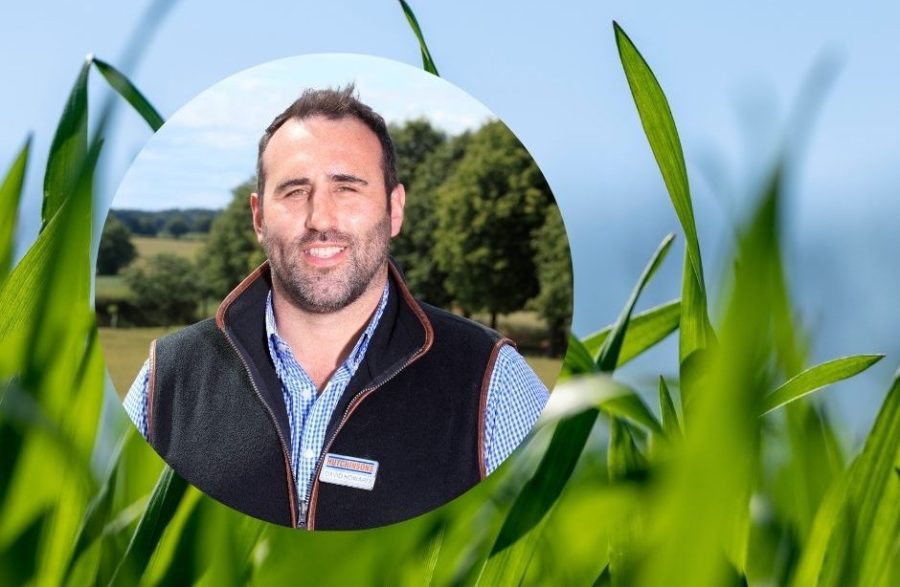David Howard is head of integrated crop management at agronomy firm, Hutchinsons. Having spent 16 years in the trade, he believes now is an interesting yet challenging time for UK agronomy.
“We’re definitely seeing sustainability increase in importance for both growers and end markets – the public is demanding traceability within the food chain and there’s a greater drive from government through initiatives such as SFI (Sustainable Farming Incentive).
“A significant part of the future will be the integration of these sustainable practices which should drive innovation meaning we look beyond just traditional crop production approaches,” he says.
Yield objectives
A threat to the success of this, he believes, is climate variability – something which David stresses can’t be ignored. “Subsequently, it’s becoming harder to meet yield objectives. So how do we add value to a crop if we can’t boost yield? Many are experiencing plateaus and feasibly speaking, yield can’t keep increasing. We have to find alternative ways to create value in our produce.”
He suggests the answer likely won’t lie in winter wheat alone. “There’s a lack of flexibility at the moment and unless other crops can make more money or be less risky to grow, it’ll be difficult to improve the resilience of cropping rotations,” adds David.
Resistance threats
He also highlights the increasing threat from fungicide and herbicide resistance. “We’re seeing changes to weeds, pests and diseases, plus climate challenges and reductions in the effective crop protection options to deal with them. In the future, what might this mean for acceptable levels of control? We’ll need more robust systems and approaches.
“That’s because resistance doesn’t have to be to chemistry, nature always seems to find a way to overcome our intervention. For example, blackgrass emergence patterns are occurring later within the season,” he explains.
Integrated pest management
Despite these challenges, he perceives the greatest opportunity to be rationalising what integrated pest or crop management (IPM/ICM) looks like for farmers.
“This is often viewed as very intricate, but with technology, it should be easy and achievable. And with this comes an overall change in how people operate – a greater emphasis on precision and data. But this could unlock the ability to lift on-farm averages which may address the conundrum of how to add more value to a crop,” says David.
He hopes that in the future, individuals will have improved knowledge of soils. “For something which has been around forever and is so essential in what we do, it seems to be the last black spot in our understanding. There’s so much work and knowledge to be done here, and the impact that could have will be very interesting to witness.”
Industry impact
As for his career, David highlights that he’s not a huge fan of milestones or targets because they can encourage a single-minded approach. “Broadly, I’d love to have made a positive impact on what we do as an industry. I see my position as joining innovation and practical farming together to understand what can a farmer do with a technology, approach or product, and how they can do it well.”
Furthermore, he cites constant change and challenge as what keeps him invested in his role. “I’ve seen significant change within my career so far and with this comes a need for problem solving.
“I have a thirst for knowledge and constantly challenge my views and insights through reading, research, and trial and error. With the abundance of information available today, new approaches like machine learning and artificial intelligence have the potential to transform how we understand and utilise information.
“This will be essential when dealing with such a complex and multi-faceted task, as growing a successful crop,” he concludes.
This article stems from CPM’s Arable Farming 2050 feature, which was written to celebrate the magazine’s 25th anniversary.




